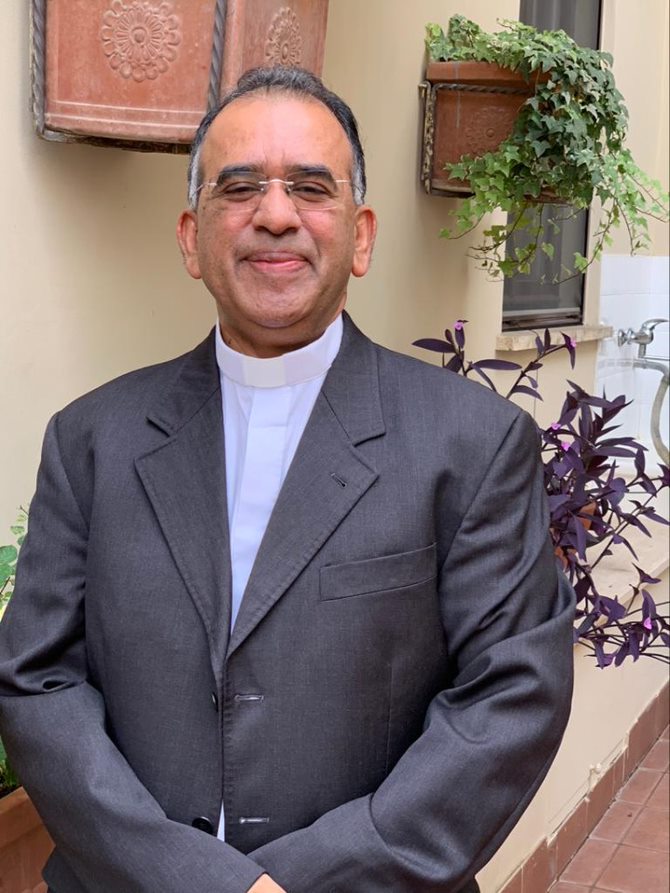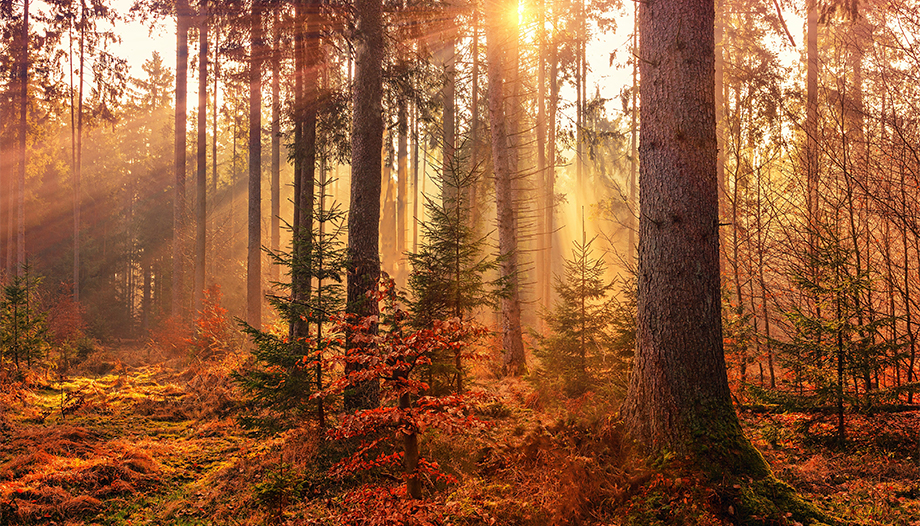"Laudato Si' has been something of a watershed not only for the Church but for the whole world. The influence it has had on the Catholic Church is evident in the many initiatives that have arisen in many local communities in the area of care for creation," says el Fr. Joshtrom Issac Kureethadam, director of the Office of Ecology and Creation of the Vatican Dicastery for the Service of Integral Human Development, in an interview that will be published in full in Omnes magazine next July.

"This year's Laudato Si' Week showed in some ways how the Encyclical has entered the mainstream of our Catholic communities around the world. Participation was colossal for the online plenary events each day and there have been hundreds and hundreds of local events around the world during Laudato Si' Week," adds Fr. Joshtrom Kureethadam, a Salesian religious.
In his opinion, "Laudato Si' is important especially for its focus on integral ecology. It is not only an environmental text, but also a social encyclical," says the director of the Vatican's Office of Ecology and Creation, who refutes accusations of alarmism: "Civil society and governments around the world have recognized the seriousness of the ecological crisis.
"Unfortunately," he adds, "there are those who see climate change as a 'conspiracy' or think it is alarmist to talk about the crisis of our common home. This is a very unfortunate situation." "Climate science has grown significantly in recent decades and there is a unanimous consensus in the scientific community that the current ecological crisis in the case of climate and biodiversity crises is due to human activities." Fr. Kurethaadam assures that "Pope Francis was assisted by the world's top scientists, including members of the Vatican's Pontifical Academy of Sciences."
Beauty of Creation
At the start of the 10-day celebration of Laudato Si' Week (May 16-25), Catholics recalled the beauty of God's creation, but also the dangers faced by people around the world in taking action on behalf of our common home, recalled Tomás Insua, executive director of the Global Catholic Climate Movement, who summed up the Week in these 60 seconds
A new species of screech owl was discovered deep in the Amazon rainforest of Brazil. The species was named Megascops stangaie in honor of Notre Dame de Namur nun Dorothy Stang, who was murdered in Brazil in 2005 while working for the Amazon and its people, Insua reports.
"This movement rejoices in the discovery of a new species, but we join the Sisters of Notre Dame de Namur and all people of faith in mourning the death of Sister Dorothy Stang and all environmental defenders around the world."
Top 5 of Laudato Si' Week
To learn more about what happened during Laudato Si' Week, five aspects that stood out during these days are highlighted below. Inspired by the slogan, "because we know that things can change," thousands of Catholics worked these days "with hope and with the fervent belief that together we can create a better future for all members of creation," notes the Global Catholic Climate Movement. These are the highlights of these days:
1. Pope Francis' leadershipwho once again led the way, inspiring and encouraging Catholics to participate in the celebration. Months before the event, the Pope encouraged the world's 1.3 billion Catholics to participate through a special video invitation. He repeated his invitation during on May 16The Pope then thanked the millions of people for their participation in the Special Anniversary Year of Laudato Si', and expressed his best wishes to those who had participated in the celebration by tweeting about #SemanaLaudatoSi. Laudato Si' Animators laudatosianimators.org/en/home-en/
2. Catholics and their institutions take action. At the local level, nearly 200 events were recorded in LaudatoSiWeek.org/en worldwide, a growth of more than 200 % compared to Laudato Si' Week 2020. Here are some examples of how Catholics inspired their communities:
- In Trinidad and TobagoIn the midst of an increase in local Covid-19 cases, Catholics served as a light and hope for all the peoples of the Caribbean by virtually uniting them for prayer, reflection and dialogue.
- Fiji's Catholics staged a Daily Laudato Si' Challenge which included planting hardwood fruit trees and flowers to help their food security and reduce the amount of carbon in the atmosphere.
- In Kenya, Bangladesh, India, Brazil, Australia, the United States, Mexico, East Timor, Vietnam and other countries, Catholics gathered online and in person to share the ways they are living Laudato Si' and to inspire each other to do more for creation.
- In South Korea and the Philippines, week-long activities led to Catholics celebrating Laudato Si' Masses, promoting climate justice projects and participating in climate demonstrations.
– Catholics in Latin America organized webinars that focused the attention of the entire region on internal displacement, the plight of farmers during the climate crisis, and the Escazú Agreement, the region's first international treaty on the environment.
- In Italy, graduated Laudato Si' Animators organized about 700 projects, which included time for prayer and immersion in creation.
3. Laudato Si' Dialogues. The Pentecost Prayer Meeting/Missionary Outreach, led by Cardinal Luis Antonio Tagle, prefect of the Congregation for the Evangelization of Peoples, took place on May 23 around the world and was followed by tens of thousands of people on YouTube and Facebook. Throughout the week, as Catholics organized events at the local level, the Laudato Si' Dialogues challenged everyone to examine how we can do more for our common home.
4. Fossil fuel divestment. During Laudato Si' Week 2021, dozens of institutions from 12 countries pledged to divest from fossil fuels. Last year, on the occasion of the fifth anniversary of Laudato Si', the Vatican issued environmental guidelines that frame investment in fossil fuels as an ethical choice, on par with other important ethical choices. Fr. Joshtrom Issac Kureethadam has stated that divestment is a physical, moral and theological imperative. On the other hand, Cardinal Jean-Claude Hollerich, Archbishop of the Diocese of Luxembourg and President of the Conference of Catholic Bishops of EU States (COMECE), pointed out that institutions that choose not to divest risk making their other work ring hollow.
5. Laudato Si' Platform for Action. On May 25, the Vatican officially launched the Laudato Si' Platform for Action, which will empower Catholic institutions, communities and families to implement Laudato Si'. The Pope's initiative invites the entire Catholic Church to achieve total sustainability over the next seven years, as reported by Omnes.











